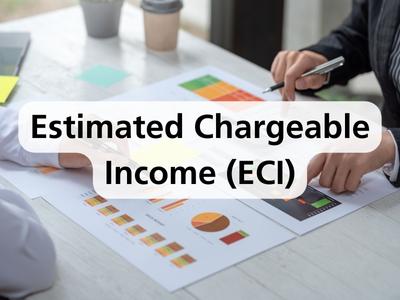Estimated Chargeable Income (ECI)
 Summary: The estimate on how much a company needs to pay on taxes for a year of assessment.
Summary: The estimate on how much a company needs to pay on taxes for a year of assessment.
The Estimated Chargeable Income (ECI) is a projection of a company’s tax obligations for a fiscal year. This estimate is arrived at after discounting permitted tax expenditures but before applying any tax rebates or exemptions. An ECI must be submitted to IRAS by every company within three months of their fiscal year end.
What Information is Needed When Filing an ECI?
Companies are required to declare their revenue during the ECI filing process. This refers to the primary earnings and does not include aspects such as interest, dividends, or rentals. Audited financial statements are needed to report this revenue amount.
If unavailable, companies can declare their revenue using their management accounts. However, if the actual revenue total derived from the audited financial reports is different from what was declared in the ECI form, it doesn’t need to be updated if there is no change in the ECI.
Who is Responsible for Submitting an ECI?
All companies in Singapore must submit an ECI, except for those that are eligible for the administrative concession or those specifically exempted from filing. The following entities are not required to file an ECI:
- Companies with annual returns of less than $5 million and an ECI of zero for the fiscal year are exempted from filing the ECI for that given year.
- Specific entities not obliged to file an ECI include foreign universities and ship owners or charterers whose Shipping Return will be submitted by a local shipping agent, designated unit trusts and approved CPF unit trusts, real estate investment trusts granted the tax treatment according to Section 43(2) of the Income Tax Act as well as any specific cases that are allowed to waive the ECI by IRAS.
How are Potential Variances Between the ECI and the Actual Taxable Revenue in the Tax Return Managed?
After the company submits the ECI, a Form C-S/C needs to be lodged. In the event of a discrepancy, an excess tax paid is reimbursed, whereas any underpaid tax must be paid in full within a month from the date of the Notice of Assessment. In cases where there’s a notable discrepancy, the company might need to provide an explanation to IRAS before adjustments can be undertaken.


